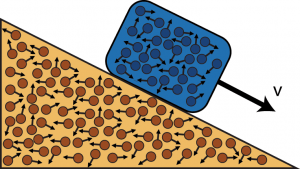Yaneer Bar-Yam in Student Voices:
 One of the hardest things to explain is why complex systems are actually different from simple systems. The problem is rooted in a set of ideas that work together and reinforce each other so that they appear seamless: Given a set of properties that a system has, we can study those properties with experiments and model what those properties do over time. Everything that is needed should be found in the data and the model we write down. The flaw in this seemingly obvious statement is that what is missing is realizing that one may be starting from the wrong properties. One might have missed one of the key properties that we need to include, or the set of properties that one has to describe might change over time. Then why don’t we add more properties until we include enough? The problem is that we will be overwhelmed by too many of them, the process never ends. The key, it turns out, is figuring out how to identify which properties are important, which itself is a dynamic property of the system.
One of the hardest things to explain is why complex systems are actually different from simple systems. The problem is rooted in a set of ideas that work together and reinforce each other so that they appear seamless: Given a set of properties that a system has, we can study those properties with experiments and model what those properties do over time. Everything that is needed should be found in the data and the model we write down. The flaw in this seemingly obvious statement is that what is missing is realizing that one may be starting from the wrong properties. One might have missed one of the key properties that we need to include, or the set of properties that one has to describe might change over time. Then why don’t we add more properties until we include enough? The problem is that we will be overwhelmed by too many of them, the process never ends. The key, it turns out, is figuring out how to identify which properties are important, which itself is a dynamic property of the system.
To explain this idea we can start from a review of the way this problem came up in physics and how it was solved for that case. The ideas are rooted in an approximation called “separation of scales.”
More here. [Thanks to Ali Minai. And, yes, I know this article is from 2017.]
